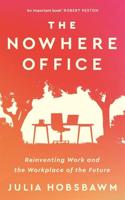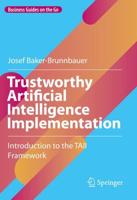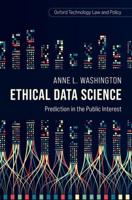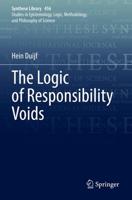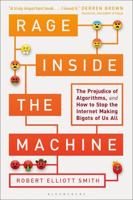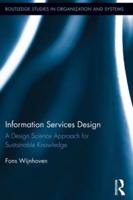Publisher's Synopsis
Distributed networks such as the Internet have altered the fundamental way a record is created, captured, accessed and managed over time, and therefore who controls, has access to, and is responsible for its authenticity. Law and ethics provide the major sources of regulatory controls over participants in such networks. This book analyses the interrelationship of recordkeeping, ethics and law in terms of existing regulatory models and their application to the Internet environment. It proposes the legal and social relationship model as an analytical tool for identifying the rights and obligations of recordkeeping participants in networked 'business' transactions within communities of common interest based on trust. The model is also used to examine the legal concepts of property, access, privacy and evidence, with particular reference to its Internet context. As legal relationships have their basis in the law of obligations found in both common and civil law systems, as well as archival science, the model has a broad-based application. The approach in this book has been to reconcile a number of archival traditions - the common strands rather than the differences, in particular concepts of identity, trust, acts, actors, and social relationships - as fundamental concepts to social regulation. It is therefore primarily directed to archives and records academics and practitioners (especially those working within the realm of electronic records), in order to provide them with a sound theoretical and practical knowledge of the legal and ethical dimensions of records created in distributed environments.



